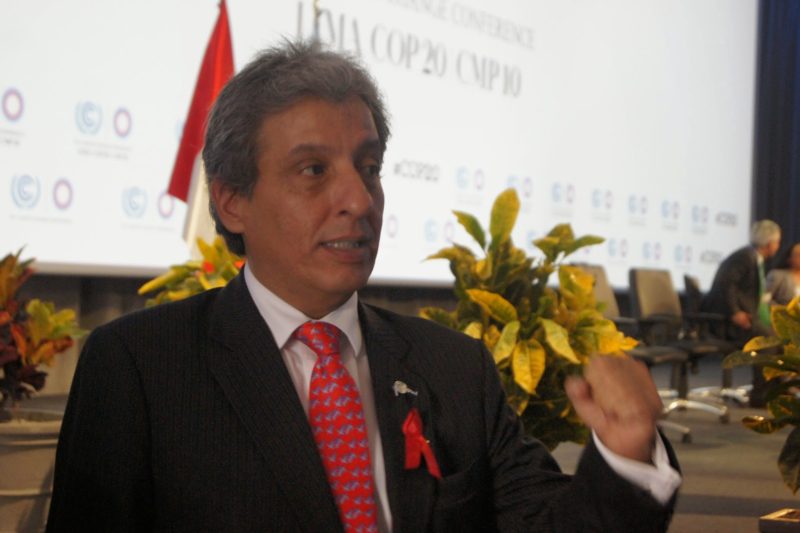As part of the Global Climate Action Summit, the World Wide Fund for Nature (WWF), together with a broad coalition of partners, on Monday, June 11, 2018 issued the 30X30 Forests, Food and Land Challenge: calling on businesses, states, city and local governments, and global citizens to take action for better forest and habitat conservation, food production and consumption, and land use, working together across all sectors of the economy to deliver up to 30% of the climate solutions needed by 2030.

Hosted in San Francisco, California from September 12 to 14, the Summit will bring together thousands of people from around the world to drive ambition to the next level. According to the organisers, it will be a moment to recognise the extraordinary achievements of states, regions, cities, companies, investors, and citizens taking climate action and to catalyse bold new commitments and action.
Collectively, the global food system, unsustainable forest management, infrastructure development, and other activities related to land use are a major driver of global climate change, accounting for more greenhouse gas emissions than the total emissions from all cars, trucks, trains, planes and ships in the world. Forests, grasslands, and other habitats pull carbon out of the atmosphere, but when they are cleared, they release carbon and their capacity to reabsorb it is diminished. In the soil and in healthy ecosystems, carbon is a building block of life; in the atmosphere, it heats the planet.
“To curb climate change, we must address the second-greatest source of emissions: our use of land,” said Manuel Pulgar Vidal, leader of WWF’s global climate and energy practice. “By taking concrete action, businesses and local leaders also can encourage national governments to more aggressively reduce carbon emissions using every resource available, including trees, grasses and soil.”
California State Governor, Edmund G. Brown Jr., a Summit co-chair, recently underlined the actions California is taking to deal with forest losses. Forests serve as the state’s largest land-based carbon sink, drawing carbon from the atmosphere, but even a single wildfire can quickly undermine those benefits.
“Devastating forest fires are a profound challenge to California,” Governor Brown said recently when issuing a sweeping Executive Order to increase the ability of forests to capture carbon. “I intend to mobilise the resources of the state to protect our forests and ensure they absorb carbon to the maximum degree.”
“Climate change is already disrupting and destabilising our global food and agricultural systems,” said Paul Polman, CEO of Unilever. “By eliminating habitat loss and degradation from our supply chains, we can prevent the emission of billions of tons of greenhouse gases. Businesses like ours have a responsibility and an opportunity to help the nations of the world meet and exceed the goals of the Paris Agreement.”
Businesses, state and local agencies, multilateral organisations, scientists, and other stakeholders can meet this challenge by taking concrete action to:
- Halve food loss and waste and consume conscientiously.
- Sequester one gigaton of carbon per year in forests and other natural and working lands.
- Enable better production of food and fibre by unlocking finance, providing tools to increase transparency, fostering public-private collaboration and protecting local rights.
Because Indigenous Peoples and local communities are among the most effective guardians of natural habitats and most directly harmed by the loss and degradation of forests and waterways, engaging and protecting these constituencies and their tenure rights will be critical to meeting the 30X30 Challenge.
“Given the large but unrecognised contributions indigenous peoples are making by protecting huge areas of the world’s forests, we are central to the climate solution,” said Cándido Mezua, an Embera leader from Panama and secretary for international relations for the Mesoamerican Alliance of Peoples and Forests (AMPB). “Governments and the private sector should embrace our approach to sustainable development, partner with us in the planning, and allow us to share in the prosperity that results.”
